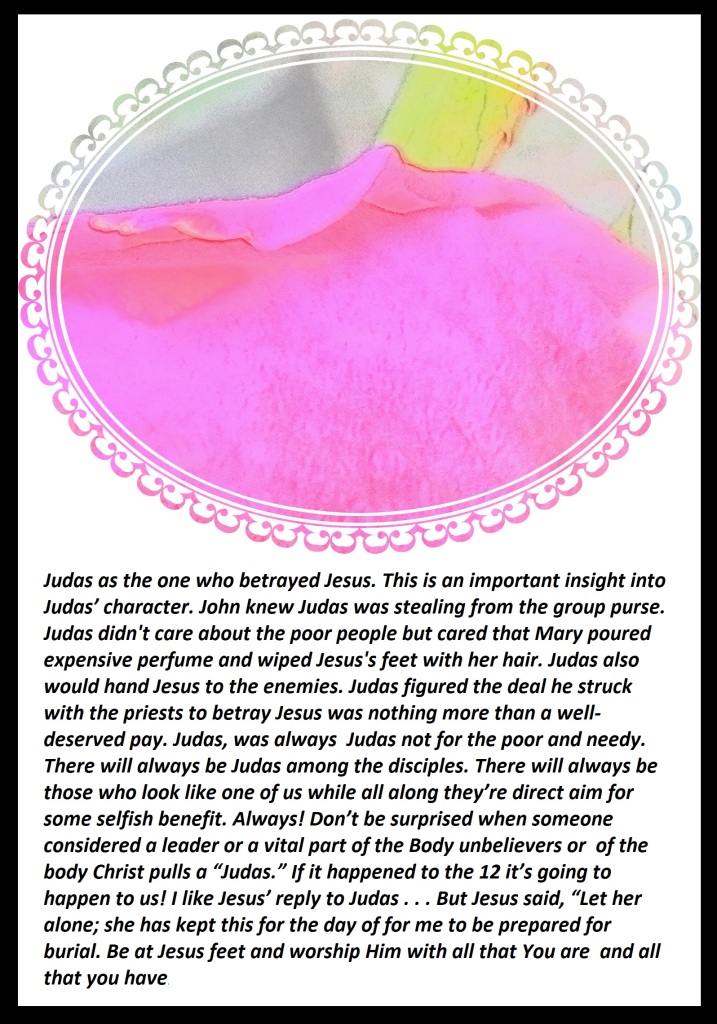Judas as the one who betrayed Jesus. This is an important insight into Judas’ character. John knew Judas was stealing from the group purse. Judas didn’t care about the poor people but cared that Mary poured expensive perfume and wiped Jesus’s feet with her hair. Judas also would hand Jesus to the enemies. Judas figured the deal he struck with the priests to betray Jesus was nothing more than a well-deserved pay. Judas, was always Judas not for the poor and needy. There will always be Judas among the disciples. There will always be those who look like one of us while all along they’re direct aim for some selfish benefit. Always! Don’t be surprised when someone considered a leader or a vital part of the Body unbelievers or of the body Christ pulls a “Judas.” If it happened to the 12 it’s going to happen to us! I like Jesus’ reply to Judas . . . But Jesus said, “Let her alone; she has kept this for the day of for me to be prepared for burial. Be at Jesus feet and worship Him with all that You are and all that you have.
It reads in John 12:1-8 EASY>
Six days before the Passover festival, Jesus went to Bethany. That is where Lazarus lived, the man Jesus raised from death. There they had a dinner for Jesus. Martha served the food, and Lazarus was one of the people eating with Jesus. Mary brought in a pint of expensive perfume made of pure nard. She poured the perfume on Jesus’ feet. Then she wiped his feet with her hair. And the sweet smell from the perfume filled the whole house. Judas Iscariot, one of Jesus’ followers, was there—the one who would later hand Jesus over to his enemies. Judas said, “That perfume was worth a full year’s pay. It should have been sold, and the money should have been given to the poor people.”But Judas did not really care about the poor. He said this because he was a thief. He was the one who kept the moneybag for the group of followers. And he often stole money from the bag. Jesus answered, “Don’t stop her. It was right for her to save this perfume for today—the day for me to be prepared for burial. You will always have those who are poor with you. But you will not always have me.”

